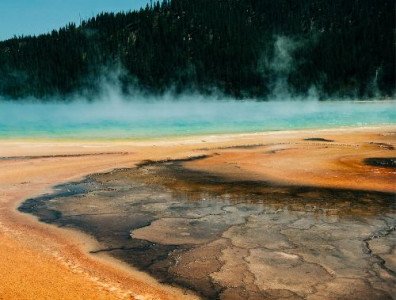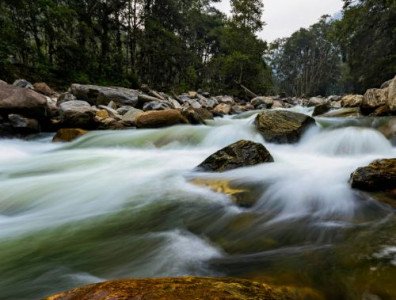Open mind needed for future energy
The stability and security of our energy resources will be essential as we look to a future of climate uncertainty. Dr David Krofcheck from the University of Auckland’s Faculty of Science says having an open mind will enable directors to adapt to change.
“What's happening now, and what's happened in the past are going to be different in the future because our climate is changing,” Dr Krofcheck says of the need to consider stable energy sources.
Climate change means some countries may have more sunshine than others, while other countries may experience severe drought, and it is for this reason that he believes a pure reliance on solar and hydro power may need some rethinking.
While the idea of building a nuclear power plant isn’t financially realistic – or desired – in New Zealand, Krofcheck, who grew up in the United States, is familiar with the effects of nuclear power on people, but also the misconceptions. He believes that as technology evolves, the availability of smaller, modular reactors could be beneficial, even in a New Zealand context.
“When you think of a nuclear reactor, you think of this giant plant with a gigantic pressure vessel with all of this uranium in it, but these reactors are designed so you can take one, and if you need more power you can snap the next one in, and they're just a little bigger.”
Krofcheck likens these reactors to Lego bits, which can be added to, depending on the needs of the business or size of the community. No bigger than the size of a freight container, he says smaller microreactors could also have the capacity to service individual towns, “You have a microreactor or one of these modular reactors and that may be New Zealand's future - to have baseline power,” he says.
The need to address our future energy comes from the basis that relying on what we have done in the past isn't good enough, and that current and future needs should reflect what is happening with global climate change.
“If we have not been able to ameliorate carbon dioxide emission in the atmosphere that causes climate change, New Zealand may one day decide that we want a stable and reliable source of power,” he says.
So rather than having a one-track renewable energy focus, Krofcheck suggests creating a balance with the modular reactors to make up for the lack of certainty in electricity generation. He says, for ‘electrical generation’ there are hidden costs that have been overlooked and uses ChatGPT as an example.
The amount of power generated to access and use it was researched through a Danish study that showed that over the course of a month, electricity used by people putting questions through ChatGPT, equated to power that could service 45,000 Danish households on average.
“You need very sophisticated computers which generate a lot of heat and have to be cooled, so it takes a lot of water, and it uses a lot of power to run the high-tech graphic processing units to make ChatGPT work . . . so there are these hidden electrical costs,” Krofcheck says.
Using and relying on electricity is now a given and Krofcheck is in favour of renewable energy sources, but says renewables are unstable and there needs to be careful consideration in terms of our reliance on it. “We want to switch our source of electric power to renewables, but you need some kind of solid base power to lie under this fluctuating source of energy, and the modular reactors will provide power whether the sun is shining, or not.”
That guarantee of power will be essential for businesses, services and companies to operate if they are reliant on “power hungry” tools.
While Krofcheck acknowledges the negative perception around nuclear power, much of which derives from toxic nuclear waste, that is a problem he says that has been solved. The US has the potential to bury their nuclear waste in the Yucca Mountains in Nevada – away from water resources and within the geologically stable, isolated location where it needs to remain underground for tens of thousands of years, according to Krofcheck. Finland also operates an underground waste storage facility.
“Like it or not, we have hundreds of nuclear plants operating in the world today, and we are fortunate that we don't need one in New Zealand,” Krofcheck says.
But even with nuclear power, there is only a finite amount of uranium left.
“It’s about 130 years, or one-and-a-half lifetimes of useful, easy-to-mine uranium or nuclear reactors.”
But that, he says, is preferable to carbon dioxide-producing coal, or burning oil and gas.
While Aotearoa New Zealand is making significant headway to a renewable energy transition, there is still uncertainty, and Krofcheck believes directors need to consider the options and remain open to changing their minds on the energy front where stakeholder interests are concerned.
“I know universities around the world who have pulled out investments from their retirement funds from different parts of the world that have disagreeable political or economic philosophies, and this is something that companies and boards of directors who are charged with looking in the long term, should take into account.”
Krofcheck advises boards to make the best-informed judgement on the issue and take information from the most reliable and trustworthy sources. “Directors have a responsibility and duty of care . . . I'm not on a board, but if my retirement fund has money distributed in different companies, I would like to know that those directors are well informed and care that the money is being invested in climate change mitigation.”
Dr David Krofcheck is speaking at the annual Leadership Conference hosted by the Institute of Directors New Zealand. Find out more or to purchase your ticket for the event today!



